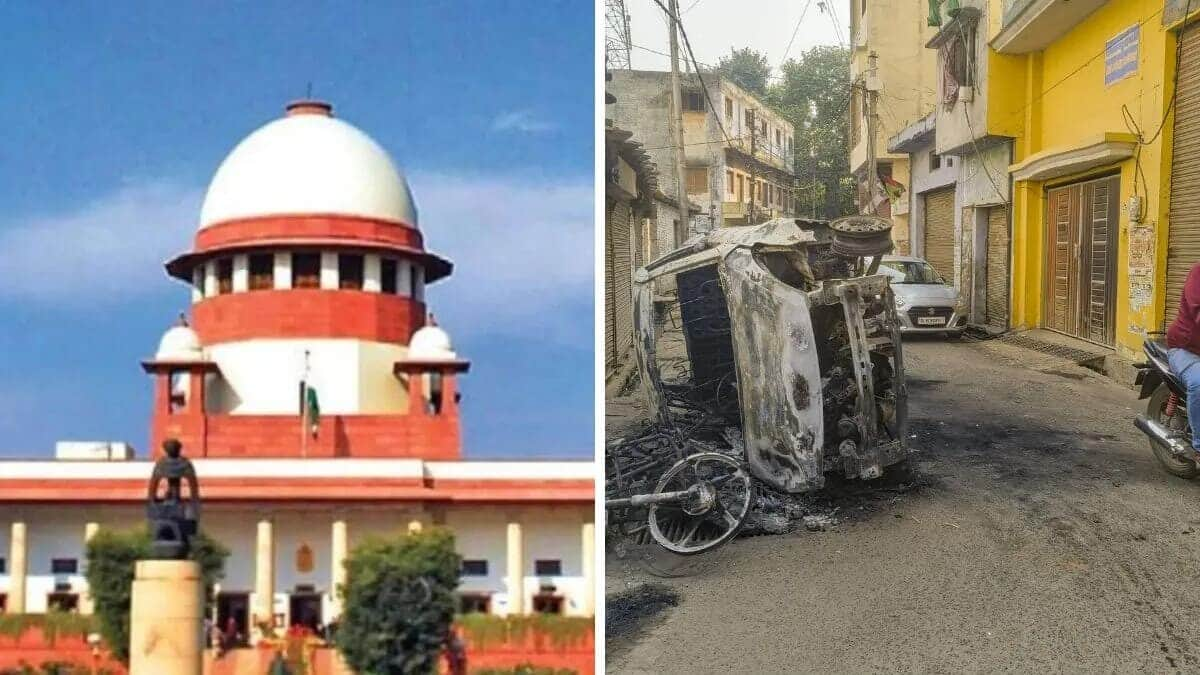
Supreme Court halts trial court proceedings in Sambhal mosque case
What's the story
The Supreme Court of India has directed the Sambhal Trial Court to stay proceedings in the Sambhal Jama Masjid case.
The apex court's order will be in force until the mosque's petition challenging a survey order by the trial court is listed in the Allahabad High Court.
It also ordered that the Advocate Commissioner's report on the mosque survey should not be unsealed.
Court's stance
SC emphasizes neutrality, peace in Sambhal mosque case
The hearing was presided over by Chief Justice of India Sanjiv Khanna and Justice Sanjay Kumar.
The mosque committee had challenged the November 19 trial court order for the survey, alleging that it was ordered in "hot haste."
CJI Khanna underscored the importance of maintaining peace and neutrality during the proceedings.
He stated, "Peace and harmony have to be maintained...we have to be absolutely, totally neutral and ensure nothing wrong is done."
Legal advice
SC advises mosque committee to approach High Court
The bench advised Senior Advocate Huzefa Ahmadi, who is appearing for the mosque committee, to approach the High Court rather than directly appealing to the Supreme Court.
The trial court proceedings are now listed for January 8, 2025.
This advice was given despite some reservations about the order, with CJI Khanna saying, "You have to approach the appropriate forum."
Unrest aftermath
Survey order sparks violence, leads to arrests
The Civil Judge (Senior Division) of Sambhal had earlier ordered an ex-parte order for a survey by an advocate commissioner.
The decision had led to violent clashes leaving four dead.
The plaintiffs, including Advocate Hari Shankar Jain and seven others, claimed Mughal emperor Babar built the mosque in 1526 after demolishing a temple.
In the wake of these events, police detained 31 people, including Samajwadi Party MP Zia-ur-Rehman Barq and Sohail Iqbal, son of local MLA Iqbal Mehmood.
Legal challenge
Mosque committee challenges survey order
The Masjid Committee challenged the survey order, contending it was done in haste.
They alleged this action violated the Places of Worship Act and hinted such surveys are becoming a trend.
The survey was approved and conducted all within a day, followed by another survey with a notice of only six hours, they said.
The committee added that these activities have given birth to broad communal tensions and threaten the secular and democratic fabric of the nation.